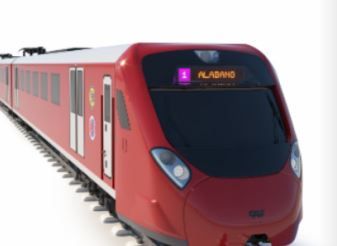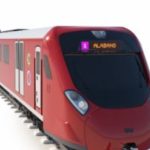 Seven CAF EMUs will be manufactured for Philippines, following the decision of Mitsubishi Corporation to outsource the design and supply of the trains under a contract awarded by the Department of Transportation (DOTr).
Seven CAF EMUs will be manufactured for Philippines, following the decision of Mitsubishi Corporation to outsource the design and supply of the trains under a contract awarded by the Department of Transportation (DOTr).
In October, Mitsubishi and CAF won the train contract estimated at PHP 9 billion (USD 162.3 million) to supply the rolling stock for the Malolos – Clark rail connection. The two companies have also won in 2017 a EUR 225 million contract to supply 30 light rail vehicles for Manila.
The project includes the manufacture of the seven express electric trains, each one consisting of eight cars including the fleet spares.
The contract is one of the packages of the project for the North-South Commuter Railway project (NSCR) which will connect the Clark International Airport in northwest of Manila serving as one of the country’s principal entry hubs for international flights with the province of Laguna, in the southern part of Luzon. The project is worth EUR 150 million, and it is financed by the Japan International Cooperation Agency (JICA).
The CAF EMUs will run on the 147 km North-South Commuter Railway system aims to connect Clark, Pampanga in the north and Calamba, Laguna in the south, providing connection between Metro Manila and the neighbouring provinces. The new system will reduce travel time by two hours from currently 4.5 hours and is estimated to be used by 600,000 passengers each day.
In February 2023, the Government of Philippines and the Japan International Cooperation Agency signed loan agreements totalling USD 2.8 billion for the construction of the two railway lines part of the new system.
The new line, which will be managed by the Department of Transportation in partnership with the Philippine National Railways (PNR), forms part of the national initiative to improve transport in the surrounding areas of the Philippine capital city – in this case the route to the airport, reduce road traffic, and prevent major traffic jams in the metropolitan area, all forming part of the framework of the Philippine government’s policy to achieve more sustainable transport.
The first phase of NSCR involves the 38 km Malolos – Manila rail line which is expected to enter commercial services by the end of 2025 when it will be used by more than 200,000 passengers. The NSCR will cross three regions and the entire project is expected to become operational in 2028.
Share on:





